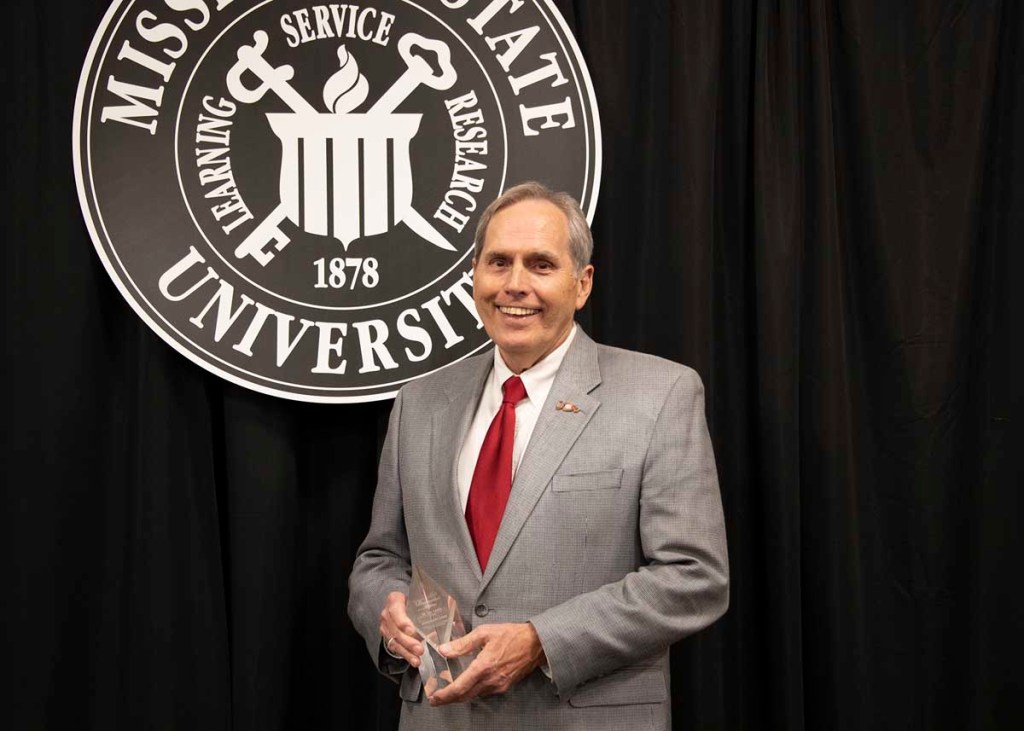Dr. Joe Lewis honored for industry-changing research
Published 8:00 am Monday, April 1, 2019

- Dr. Joe Lewis was honored as a Distinguished Fellow by the Mississippi State University College of Agriculture and Life Sciences on Mar. 7.
TIFTON — Dr. Joe Lewis was recently honored by his alma mater for his industry-recalibrating research in entomology while he was working at the University of Georgia Tifton Campus.
Lewis was honored as a Distinguished Fellow by the Mississippi State University College of Agriculture and Life Sciences on Mar. 7.
Trending
He was one of nine alumni of the school so honored.
Lewis’s research focused on discovering and unraveling the chemical mechanisms regulating plant, herbivore, and beneficial insect interactions. He discovered how plants use chemical “SOS” signals to recruit beneficial insects to their defense, which led to him and his fellow researchers formulating a different approach to pest management from what was common at the time.
He said that prior to his research, many farmers relied heavily on chemical pesticides such as DDT to help them grow crops and control pests.
“It was so amazingly effective,” he said. “This was the first real synthetic compound they discovered and it was amazingly effective. Then it spun out into uses in agriculture as well as home and pests. As a result of that everything moved into use of pesticides to manage insect pests and other related issues to the exclusion of everything else.”
He said that exclusive use of chemical pesticides on crops brought about a host of other unintended consequences that caused more harm than good.
“You get on a treadmill and it’s like a game without end,” he said. “You started getting resistance and started having disruption of other natural enemy balances and residue problems.”
Trending
He said that the scientific community in the 1960s, when he began his work, began to focus on looking at the whole system and utilizing natural means of pest control.
“My work was in the study of natural enemies,” he said, like wasps that prey on caterpillars that damage crops. “I began to find a remarkable interrelationship between the plant feeder, that’s the pest, and the wasps, which are like the plant’s police. We found a remarkable role of chemical cues and trails, kind of like a quail-dog searching for a quail.”
Lewis said that his research found that insects can learn, which was a completely new concept at the time.
“If we’d suggested that 10, 15 years earlier, we’d have been laughed out of the profession,” he said. “The concept was that all invertebrates, insects, do things by instinct and that only higher animals, mammals and people, learn. But we found that they (insects) learn and reported that in 1988.”
He said that figuring out how these predatory wasps used specific scent cues released from the plant when a particular insect was feeding on it was a game changer for the field of entomology, and led to larger applications in agriculture that completely shifted the industry.
“The plant can detect what’s feeding on it, send a signal to their police allies, and they can tell not only that something’s feeding on them but what it is,” he said. “It was way beyond what we imagined.”
Lewis said that the research showed that it is better and more effective to approach pest management from a holistic approach.
“We primarily demonstrated the power of the system that we didn’t know existed,” he said, adding that that concept stimulated research into how the natural ecosystem works by other scientists, which led to them developing other applications and reshaping the way researchers, extension agents and farmers think about the system.
“It’s a systems approach,” he said. “There was a point, I think in the 70s, when maybe one farmer was producing cotton in Tift County. It just couldn’t produce it anymore. The mindset of the way you grew a crop was you automatically put in a series of (chemical) sprays from cradle to grave throughout the year. It was taking maybe 16 to 20 treatments per year to produce a crop. It was just too costly.”
He said that focusing on using a plant’s natural resistance systems to pests, redesigning how and where fields are planted and only using chemicals as a back-up has made crops, like cotton, more cost effective for farmers and helped keep the land healthy besides.
Lewis also developed processes to train insects to selected chemical signals, and then designed and patented a system to use these trained insects as biosensors for different chemicals, from illegal drugs to explosives.
He said that one of the things he was most proud of in his career was serving as host and mentor to 29 students and young scientists from 15 countries.
“They were post-docs and scientists and graduate students from different countries,” he said. “They lived here from a year to five years. It’s one of those things that has a social and cultural impact.”
Lewis added that he was extremely fortunate to be able to collaborate with so many other scientists throughout his career.
Lewis said that he was just as proud of his efforts to be involved in the local community as he is of his professional accomplishments.
“I believe in being a citizen,” he said. “It was a decision I made growing up, that I wanted to be active in my community.”
Lewis was a member of the Tifton City Council for 16 years, was a member of the Tift County Board of Elections and Registration for 22 years, sat on the Greater Tiftarea Planning and Zoning Commission for seven years and was a member of the Tifton Downtown Development Authority for 14 years. He was also a member of four other boards in addition to being a volunteer coach for Tift County Recreation Department sports teams and a long-time member of First Baptist Church of Tifton along with his wife Beth.





